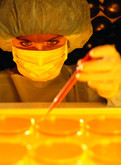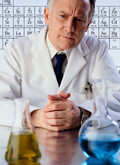Biosimilars/General
|
Posted 15/10/2009
As pointed out by Managing Editor, Ms Maria Fabiana Jorge, in the Editorial of the Journal of Generic Medicines, Volume 6, Issue 4 of August 2009, countries around the world define the future pharmaceutical market, we must learn from the past to avoid making the same mistakes or falling into new ones. Unfortunately, the current system has serious flaws and it seems that we are moving towards creating others in the new one. It is essential that governments, the pharmaceutical industry and civil society throughout the world work closely to strike a better balance between innovation and access in the context of biotechnology medicines.



















